-
Diatribes, rants in “Comments” section tarnish allure of science online
More and more digital publications, including science publications, have added a “Comments” feature to their Web sites, allowing readers to post their comments on the articles they read. This democratization of commentary, however, has been accompanied by increasingly nasty back-and-forth exchanges among readers, especially on sites where the comments are not moderated. A new study shows that in the realm of online science news, this steady diet of diatribes, screeds, and rants is taking a toll on the public perception of science and technology.
-
-
Harvard president issues a clarion call for science
Harvard President Drew Faust, addressingthe annual meeting of the American Association for the Advancement of Science (AAAS), called for members of the scientific community to “raise our voices” in an effort to prevent the U.S. Congress from becoming “an American Association for the Retreat of Science.” Urging widespread efforts to prevent U.S. cuts in funds for sustained research, Faust said: “We must secure the federal research support critical to the future of our nation and of the world.”
-
-
The sobering reality of water security
Agriculture is one of the world’s most insatiable consumers of water. Yet, it is facing growing competition for water from cities, industry, and recreation at a time when demand for food is rising, and water is expected to become increasingly scarce.
-
-
The costly wild-weather consequences of climate change
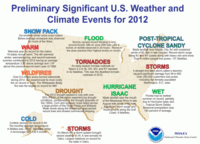
Throughout 2012, the United States was battered by severe weather events such as hurricanes and droughts that affected both pocketbooks and livelihoods. Research suggests that in the coming years, U.S. five-day forecasts will show greater numbers of extreme weather events, a trend linked to human-driven climate change.
-
-
Russia meteor a “once every 100 years” event
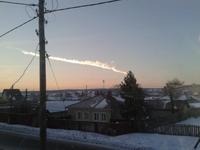
The meteor which disintegrated in the skies over Chelyabinsk, Russia, early Friday morning entered the atmosphere at about 40,000 mph (18 kilometers per second). The energy released by the impact was in the hundreds of kilotons.The meteor is the largest reported since 1908, when a meteor hit Tunguska, Siberia.
-
-
System to vaporize asteroids that threaten Earth

As an asteroid roughly half as large as a football field — and with energy equal to a large hydrogen bomb – flew by Earth on Friday, two California scientists unveiled their proposal for a system that could eliminate a threat of this size in an hour. The same system could destroy asteroids ten times larger than the one known as 2012 DA14 in about a year, with evaporation starting at a distance as far away as the Sun.
-
-
Making communities more resilient to climate-induced weather disasters
Mounting scientific evidence indicates climate change will lead to more frequent and intense extreme weather that affects larger areas and lasts longer. We can reduce the risk of weather-related disasters, however, with a variety of measures. Experts say that a good strategy should include a variety of actions such as communicating risk and transferring it through vehicles such as insurance, taking a multi-hazard management approach, linking local and global management, and taking an iterative approach as opposed to starting with a master plan.
-
-
Toxic legacy of lead pollution persists despite regulatory efforts, modest gains
Efforts to reduce lead pollution have paid off in many ways, yet the problem persists and will probably continue to affect the health of people and animals well into the future. The good news, he said, is that atmospheric lead concentrations in the United States have fallen by 89 percent in the past three decades.The bad news is that blood lead levels are still about 100 times higher than the natural background level, and there is no known threshold for lead toxicity. In other words, even tiny amounts of lead in the body can be harmful.
-
-
Jumping soft robots avoid obstacles during search and rescue operations
These soft robots can already stand, walk, wriggle under obstacles, and change colors. Now researchers are adding a new skill to the soft robot tool kit: jumping. Researchers make the robots jump by using combustible gases. This ability to jump could one day prove critical in allowing the robots to avoid obstacles during search and rescue operations.
-
-
Lessons from the 2010-11 Australia floods
New research has come up with ways quickly to assess flood damage to houses while also showing most people did not intend to make changes to reduce their vulnerability after the 2010-11 Australia floods. Two separate reports show how lessons learned from households affected by the 2010-11 Australian floods can minimize damage under current and future climates.
-
-
Sediment carried by 2011 Mississippi flood shored up Louisiana’s wetlands
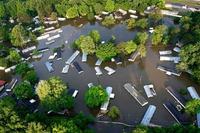
The spring 2011 flood on the Mississippi was among the largest floods ever, the river swelling over its banks and wreaking destruction in the surrounding areas. A new study also shows, however, that the floods reaped environmental benefits — transporting and laying down new sediment in portions of the Delta — that may help maintain the area’s wetlands.
-
-
Expanding biological control of crop pests
A new discovery promises to allow expanded use of a mainstay biological pest control method, which avoids the health, environmental, and pest-resistance concerns of traditional insecticides, scientists are reporting. This advance broadens the applicability of the so-called sterile insect technique (SIT).
-
-
The Middle East rapidly losing fresh water
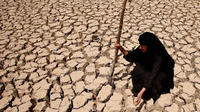
A new study using data from a pair of gravity-measuring NASA satellites finds that large parts of the arid Middle East region lost freshwater reserves rapidly during the past decade. Scientists found during a seven-year period beginning in 2003 that parts of Turkey, Syria, Iraq, and Iran along the Tigris and Euphrates river basins lost 117 million acre feet (144 cubic kilometers) of total stored freshwater. That is almost the amount of water in the Dead Sea. The researchers attribute about 60 percent of the loss to pumping of groundwater from underground reservoirs.
-
-
DHS grant to fund technology for tracking mobile devices
The University Of Alabama at Birmingham(UAB) has been given a $583,000 grant from the Department of Homeland Securityto build a system for verifying the location history and chorological track of cell phones and smart phones, tablets, and other mobile devices. The system being built could also be used to eliminate contest fraud, verify the origin of sea food, and protect national security.
-
-
Cleanup starts after Mississippi tornado, storms
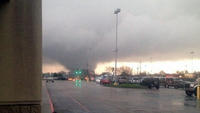
Emergency officials in Mississippi spent Monday dealing with the damage after a number of storms and a tornado ripped through the southern section of the state, injuring at least sixty people. No deaths were reported.
-
More headlines
The long view
A Shining Star in a Contentious Legacy: Could Marty Makary Be the Saving Grace of a Divisive Presidency?
While much of the Trump administration has sparked controversy, the FDA’s consumer-first reforms may be remembered as its brightest legacy. From AI-driven drug reviews to bans on artificial dyes, the FDA’s agenda resonates with the public in ways few Trump-era policies have.
Risk Assessment with Machine Learning
Researchers utilize geological survey data and machine learning algorithms for accurately predicting liquefaction risk in earthquake-prone areas.
Foundation for U.S. Breakthroughs Feels Shakier to Researchers
With each dollar of its grants, the National Institutes of Health —the world’s largest funder of biomedical research —generates, on average, $2.56 worth of economic activity across all 50 states. NIH grants also support more than 400,000 U.S. jobs, and have been a central force in establishing the country’s dominance in medical research. Waves of funding cuts and grant terminations under the second Trump administration are a threat to the U.S. status as driver of scientific progress, and to the nation’s economy.
The True Cost of Abandoning Science
“We now face a choice: to remain at the vanguard of scientific inquiry through sound investment, or to cede our leadership and watch others answer the big questions that have confounded humanity for millennia —and reap the rewards.”
Bookshelf: Smartphones Shape War in Hyperconnected World
The smartphone is helping to shape the conduct and representation of contemporary war. A new book argues that as an operative device, the smartphone is now “being used as a central weapon of war.”
New Approach Detects Adversarial Attacks in Multimodal AI Systems
New vulnerabilities have emerged with the rapid advancement and adoption of multimodal foundational AI models, significantly expanding the potential for cybersecurity attacks. Topological signatures key to revealing attacks, identifying origins of threats.
